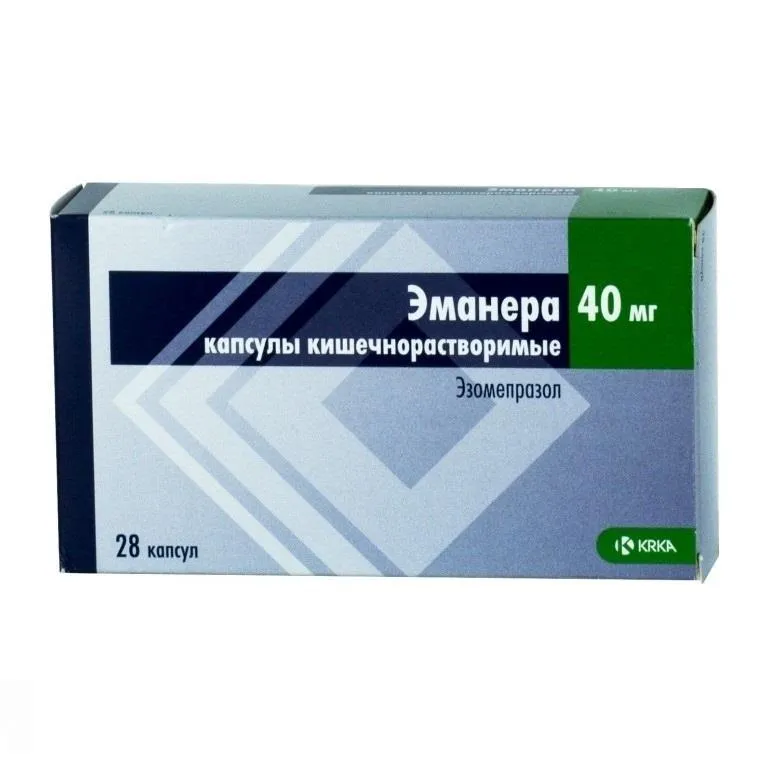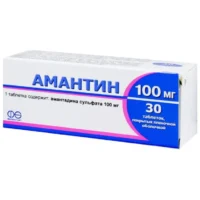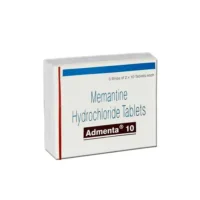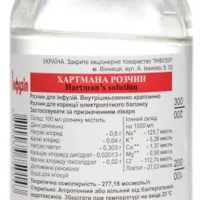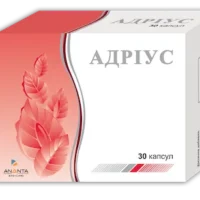Description
Emanera (Esomeprazole) Enteric Capsules 40 mg. №28
Composition:
Each enteric capsule contains 40 mg of esomeprazole.
Mechanism of Action:
Emanera (esomeprazole) enteric capsules contain esomeprazole, a proton pump inhibitor that works by reducing the production of stomach acid through inhibition of the H+/K+ ATPase enzyme system in the gastric parietal cells.
Pharmacological Properties:
Esomeprazole belongs to the class of medications known as proton pump inhibitors. It exhibits high selectivity and irreversible inhibition of the proton pump in the gastric parietal cells, leading to a significant and long-lasting suppression of gastric acid secretion.
Indications for Use:
- Treatment of gastroesophageal reflux disease (GERD)
- Healing of erosive esophagitis
- Management of gastric ulcers
Contraindications:
Do not use Emanera enteric capsules if you have a known hypersensitivity to esomeprazole or any other proton pump inhibitors. Caution is advised in patients with hepatic impairment.
Side Effects:
Common side effects may include headache, nausea, abdominal pain, diarrhea, and fatigue. Serious but rare side effects may include severe allergic reactions, Clostridium difficile-associated diarrhea, and vitamin B12 deficiency with long-term use.
Usage Instructions:
Take one 40 mg enteric capsule orally once daily, preferably in the morning before breakfast. Swallow the capsule whole with a full glass of water, and do not crush or chew it.
Benefits Compared to Analogues:
Emanera (esomeprazole) has demonstrated superior acid-suppressive effects and a longer duration of action compared to some other proton pump inhibitors, leading to improved symptom control and enhanced healing rates in acid-related disorders.
Suitable Patient Groups:
Emanera enteric capsules are suitable for adult patients, including the elderly, who require potent and long-lasting acid suppression for the management of acid-related gastrointestinal conditions. Use in children should be based on the healthcare provider’s assessment of the individual case.
Storage Conditions and Shelf Life:
Store Emanera enteric capsules in a cool, dry place at a temperature not exceeding 25°C. Do not freeze. Keep the capsules in the original package to protect from moisture. The shelf life of the product is mentioned on the packaging.
Packaging Description:
Emanera (esomeprazole) enteric capsules are available in a package containing 28 capsules. The packaging is designed to ensure the stability and integrity of the capsules until the expiration date.
Scientific Evidence:
Esomeprazole has been extensively studied in clinical trials, demonstrating its efficacy and safety in the management of various acid-related disorders. Clinical studies have shown that esomeprazole is effective in the treatment of GERD, erosive esophagitis, and peptic ulcers.

